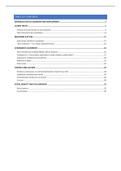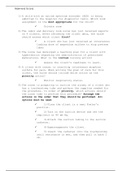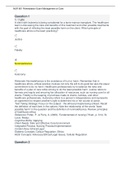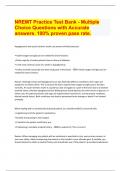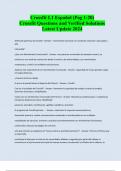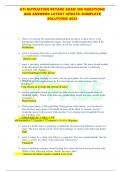Samenvatting
Samenvatting Leadership and Behavioural Decision Making (Leadership) KULeuven MBA ()
- Instelling
- Katholieke Universiteit Leuven (KU Leuven)
Volledige en duidelijke samenvatting van het vak Leadership and Behavioural Decision Making gedeelte Leadership gegeven door N. Bastardoz. De samenvatting bevat alle slides uit de les aangevuld met eigen notities.
[Meer zien]
